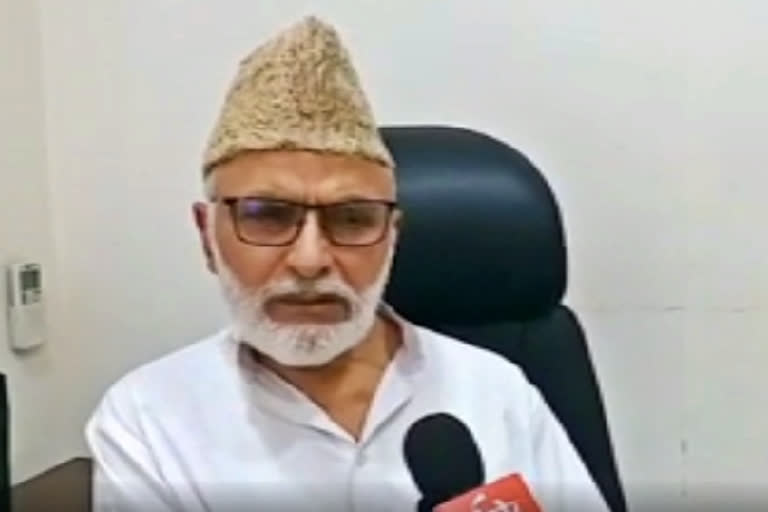Srinagar: Two years have passed since Jammu and Kashmir and Ladakh became two centrally-administered territories after the repeal of Articles 370 and 35A. While the BJP is celebrating this day today, various political parties including the Panthers Party, PDP, People's Conference and National Conference are interpreting this day as a dark chapter in the history of Jammu and Kashmir.
The National Conference says August 5 will forever be remembered as a day of darkness and deprivation.
Ali Mohammad Sagar, General Secretary of the National Conference, termed this day as a dark chapter of history and said that the decisions taken two years ago, i.e., on August 5, 2019, are despicable. Democratic ideologies are the opposite of power and India's endowment, which deserves condemnation.
5th August a dark chapter in the history of Jammu and Kashmir: Ali Mohammad Sagar Talking to ETV Bharat about the repeal of Article 370, Ali Mohammad Sagar said that the decisions of August 5, 2019, were against the principles of justice and dignity which are the basis of India's political and democratic system and constitutional philosophy.
Also read:PDP observes 'black day' in Jammu and Kashmir
He said that the task of dividing the historic state into two parts was carried out by force and coercion which had no legal justification and no public acceptance.
He said that Article 370 had been repealed by the BJP central government in the name of obstruction of construction and development. Even after two years, that progress is nowhere to be seen in Jammu and Kashmir. Neither employment was provided to the youth nor any progress was made in the development process but instead of providing relief to the common people, they were pushed into the mire of more anxiety, unemployment and underemployment.
